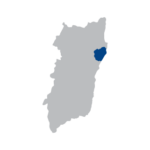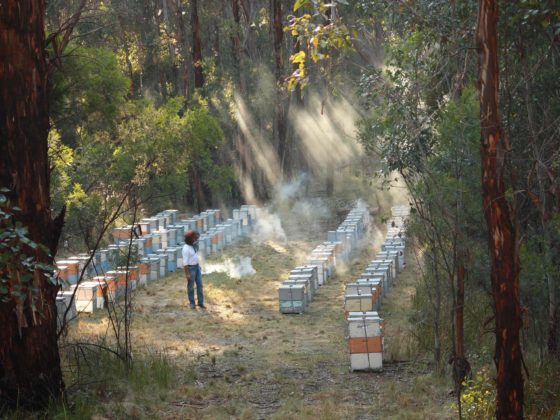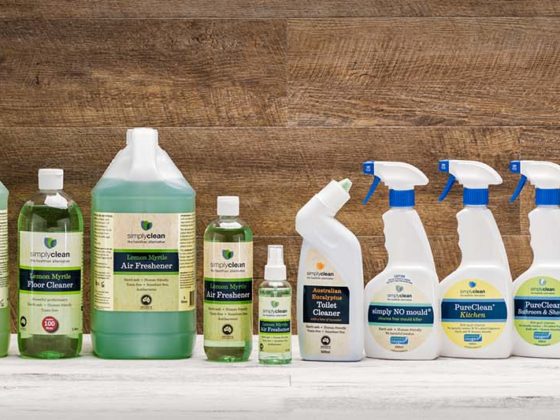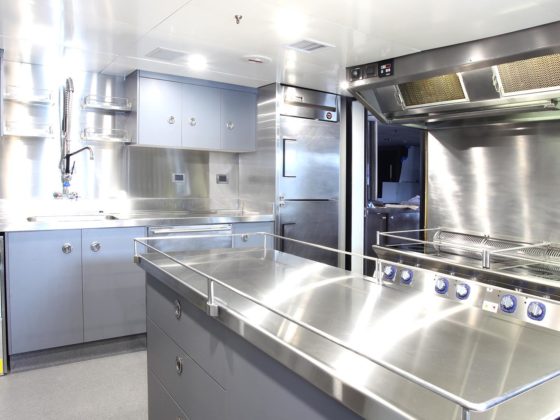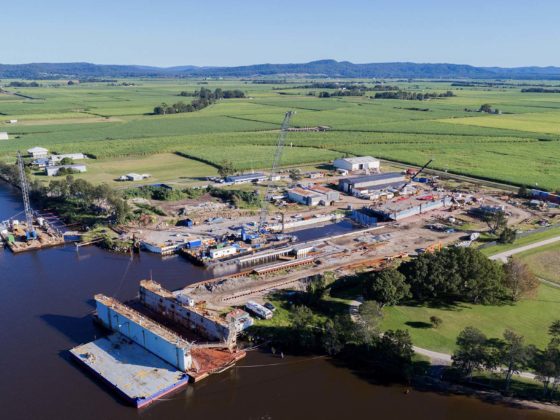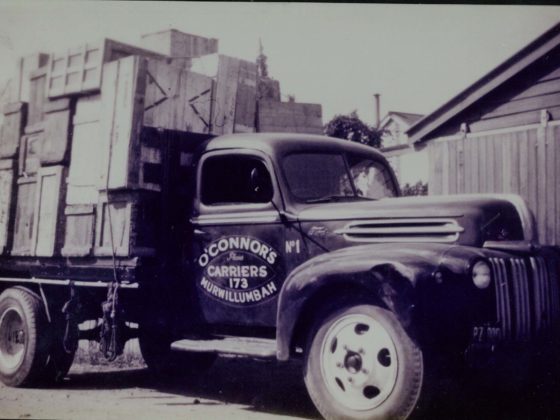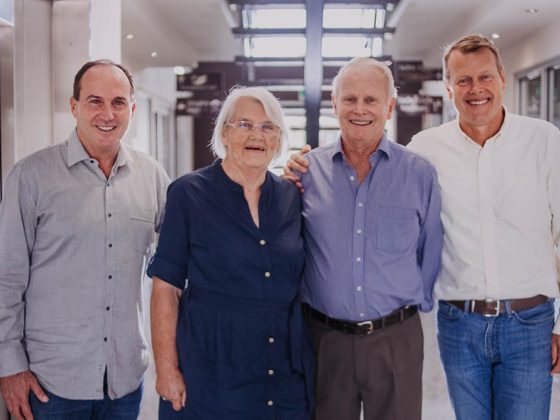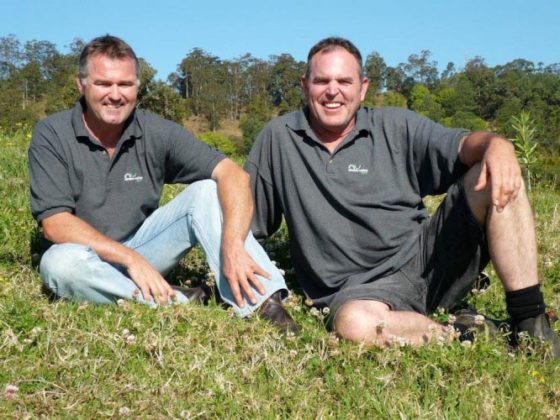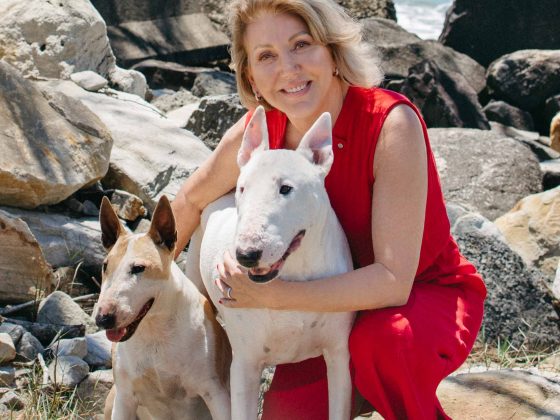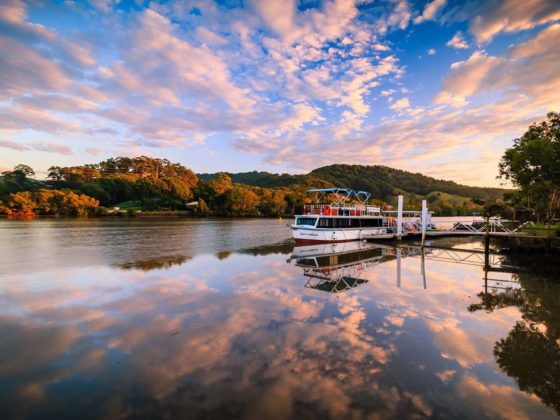biggy pop sings support for matilda
In 2020, Iggy Pop received a Lifetime Achievement Award at the Grammys; in the same year his pet cockatoo, named Biggy Pop, became the founding patron of Byron Wildlife Hospital. One was a profound honour for the former Stooges singer that he will no doubt treasure for the rest of his days; the other was a Grammy Award.
It’s not every Northern Rivers business that can boast an association with one of the most famous names in rock and roll history. But then again, perhaps only in the Northern Rivers could such a thing happen. Byron Wildlife Hospital’s connection with Iggy came about through its relationship with Bluesfest: based on Iggy owning Biggy Pop, the hospital asked if the singer’s “feathered bestie” would represent them, and he duly obliged.
It’s a nice story (and even made global news through coverage by US music media giants, Rolling Stone, Pitchfork and others), but this is all secondary to the work Byron Wildlife Hospital does around the Byron Shire and beyond. This is Australia’s largest mobile wildlife hospital, and the only one licensed by the Australian Veterinary Association. The hospital was launched in 2020 after a successful crowdfunding campaign, and operates from a permanent base at Byron Bay Wildlife Sanctuary at Knockrow – formerly the Macadamia Castle tourist attraction, which was sold to a group called Wildlife Recovery Australia, a joint venture between Byron Bay Wildlife Hospital and environmental charity, the Odonata Foundation.
Conceived and launched by vets Dr Stephen Van Mil and Dr Evan Kosack, Byron Wildlife Hospital exists to provide dedicated, expert veterinarian services to wildlife, free of charge. The full-sized semi-trailer, dubbed Matilda, can be transported to where disastrous events are occurring and affecting wildlife on a large scale.
“It has 22 wheels, its own solar panels, deep cell batteries and a satellite for telecommunications,” says Dr Van Mil, who is also the founder and CEO. “It can be rushed to a natural disaster to provide triage and critical care for injured, orphaned and traumatised native animals.”
Members of the public and licensed wildlife carers can bring injured, sick and orphaned animals to the Knockrow sanctuary for treatment. The hospital employs two full-time vets (foundation vet Dr Bree Talbot and associate vet Dr Chantal Whitten), two vet nurses, five admin staff and the CEO. It also relies on several volunteers across various roles.
The catastrophic floods of early 2022 have illustrated the essential need for such a hospital.


“On a normal day of operations, outside of the flood disaster, we can see between two and 20 patients a day,” says Dr Whitten. “Between the two flooding events we saw a steady flow of wildlife patients needing emergency assessment and treatment for conditions that were a direct result of the flood event.
“Predominant species affected by the floods included echidnas, bandicoots, possums, water birds, sea birds, freshwater turtles, and reptiles.”
Byron Wildlife Hospital was not quite up and running when the Black Summer bushfires tore through the landscape across 2019 and 2020 – but the fires did speed up the process of raising money and getting set up. “Black Summer validated the need, and our crowdfunding campaign,” says Dr Van Mil. “To build Australia’s largest mobile wildlife hospital resonated strongly with the public after three billion native animals were killed during that event.”
Byron Wildlife Hospital is a not-for-profit company governed by a skills-based board. It is owned by the afore-mentioned Wildlife Recovery Australia, and funded by philanthropy, public donations, sponsorship and merchandise sales. It receives no government funding, despite providing services to wildlife, which are legally the property of the Crown in NSW.
The hospital enjoys important partnerships with many local organisations, such as Ballina RSL, Cape Byron Distillery and Seven Mile Brewing, as well as international organisations International Fund for Animal Welfare, WWF and the United Nations Development Program. Such a strong international profile is helped along by Biggy Pop. “Biggy and Iggy both spread the word about their support for our work on social media, which is hugely valuable to build awareness globally,” says Director of Marketing and Partnerships Russell Mills.
Specific recent support from both the NRMA and iFAW has been crucial in setting up the hospital’s latest initiative: rescue kits for the public to help animals found injured on the roads. “The kits sold out quickly, and we are now selling more to the public via our website,” says Russell.
Russell emphasises that the hospital relies on the support of the general public and the business community for donations to cover the costs of expert vet care, equipment, medicine, food and hospitalisation, all of which costs $555 per wildlife patient. People can make a tax-deductible donation via the website:
“Biggy and Iggy both spread the word about their support for our work on social media, which is hugely valuable to build awareness globally”
Share this story
Read more stories
let there be light
https://ingoodcompanynorthernrivers.com.au/wp-content/uploads/2018/04/northern_lights-_ballina_northern_rivers_001.jpg 2000 1333 In Good Company | Northern Rivers In Good Company | Northern Rivers https://ingoodcompanynorthernrivers.com.au/wp-content/uploads/2018/04/northern_lights-_ballina_northern_rivers_001.jpgNorthern Light
“I eat a pot of honey every day and I’ve been stung more than 70,000 times,” says Jeffrey Gibbs, founder of Northern Light, an organic beeswax…
simply better for you
https://ingoodcompanynorthernrivers.com.au/wp-content/uploads/2018/04/simply-clean-lismore-001.jpg 1600 533 In Good Company | Northern Rivers In Good Company | Northern Rivers https://ingoodcompanynorthernrivers.com.au/wp-content/uploads/2018/04/simply-clean-lismore-001.jpgSimply Clean
It’s probably no surprise that it was a cleaning company that was the most well organised of all the businesses Huw and Becky Jones found for sale…
carefully crafted business success
https://ingoodcompanynorthernrivers.com.au/wp-content/uploads/2018/06/Evans-Head-Cabinetry-001.jpg 2000 1041 In Good Company | Northern Rivers In Good Company | Northern Rivers https://ingoodcompanynorthernrivers.com.au/wp-content/uploads/2018/06/Evans-Head-Cabinetry-001.jpgEvans Head Cabinet Making
“People often say, ‘They don’t build things like they used to’,” says fine furniture and cabinet maker Justin Crisp. “But I can confidently say…”
growing community, growing business
https://ingoodcompanynorthernrivers.com.au/wp-content/uploads/2018/03/All-ways-The-Farm.jpeg 1600 1066 In Good Company | Northern Rivers In Good Company | Northern Rivers https://ingoodcompanynorthernrivers.com.au/wp-content/uploads/2018/03/All-ways-The-Farm.jpegThe Farm
It’s a typical Saturday morning at The Farm, on the outskirts of Byron Bay. Families line up for freshly made pastry and coffee. Every table in the…
A planet of business diversity
https://ingoodcompanynorthernrivers.com.au/wp-content/uploads/2022/12/Tropical-Fruit-World_Aymon-Gow-Main-Gate.jpg 2016 1512 In Good Company | Northern Rivers In Good Company | Northern Rivers https://ingoodcompanynorthernrivers.com.au/wp-content/uploads/2022/12/Tropical-Fruit-World_Aymon-Gow-Main-Gate.jpgTropical Fruit World
It’s been almost 50 years since Robert and Valorie Brinsmead bought the 200-acre farm in Murwillumbah.
Spirit of Byron in a bottle
https://ingoodcompanynorthernrivers.com.au/wp-content/uploads/2022/12/Cawarra-Cosmetics_Katrina-2-scaled.jpg 2560 1707 In Good Company | Northern Rivers In Good Company | Northern Rivers https://ingoodcompanynorthernrivers.com.au/wp-content/uploads/2022/12/Cawarra-Cosmetics_Katrina-2-scaled.jpgCawarra Cosmetics
Cawarra Cosmetics has been a leading manufacturer of Australian skincare, personal care and cleaning products in the region for more than 40 years.
making history, creating culture
https://ingoodcompanynorthernrivers.com.au/wp-content/uploads/2018/04/SPAR-Staff.jpg 1535 1025 In Good Company | Northern Rivers In Good Company | Northern Rivers https://ingoodcompanynorthernrivers.com.au/wp-content/uploads/2018/04/SPAR-Staff.jpgSpar Maclean
SPAR Maclean’s claim to fame is a doozy. Indeed, it’s something only one supermarket in the whole of Australia can say: that it is the longest…
‘can do’ marine
https://ingoodcompanynorthernrivers.com.au/wp-content/uploads/2018/04/harwood-marine-clarence.jpg 1920 1182 In Good Company | Northern Rivers In Good Company | Northern Rivers https://ingoodcompanynorthernrivers.com.au/wp-content/uploads/2018/04/harwood-marine-clarence.jpgHarwood Marine
About half way between Yamba and Maclean is the tiny village of Harwood, which sits on the peaceful banks of the Clarence River with its population…
Dance call for Kyogle
https://ingoodcompanynorthernrivers.com.au/wp-content/uploads/2022/12/Ascent-Dance_group-dancers.jpg 1473 828 In Good Company | Northern Rivers In Good Company | Northern Rivers https://ingoodcompanynorthernrivers.com.au/wp-content/uploads/2022/12/Ascent-Dance_group-dancers.jpgAscent Dance
Starting a dance school just five weeks before the onset of a pandemic might have dampened the spirits of some new business owners, but Haylee Holliday took it as a sign that Ascent Dance Studio had to succeed.
an epic adventure into healing honey
https://ingoodcompanynorthernrivers.com.au/wp-content/uploads/2022/11/Gather-By_Product-shot.jpg 1191 893 In Good Company | Northern Rivers In Good Company | Northern Rivers https://ingoodcompanynorthernrivers.com.au/wp-content/uploads/2022/11/Gather-By_Product-shot.jpgGather By
Gather By is a closed-loop regenerative agribusiness that works with beekeepers and landholders in NSW and Queensland, and investors around Australia to produce and market rare, pure and potent Australian Manuka honey…
community keeps on carrying on
https://ingoodcompanynorthernrivers.com.au/wp-content/uploads/2018/04/OConnors-carriers-tweed-001-1.jpg 1920 1288 In Good Company | Northern Rivers In Good Company | Northern Rivers https://ingoodcompanynorthernrivers.com.au/wp-content/uploads/2018/04/OConnors-carriers-tweed-001-1.jpgO’Connors Carrying Service
Friday 30 March 2017 is a day Paul and Sue O’Connor won’t forget. The owners of O’Connors Carrying Service left their depot in Murwillumbah…
cooperative success, sweet for 150 years
https://ingoodcompanynorthernrivers.com.au/wp-content/uploads/2018/06/sunshine-sugar-richmond-valley-nsw-002.jpg 1000 627 In Good Company | Northern Rivers In Good Company | Northern Rivers https://ingoodcompanynorthernrivers.com.au/wp-content/uploads/2018/06/sunshine-sugar-richmond-valley-nsw-002.jpgSunshine Sugar
The Northern Rivers is home to generations of cane farming families who have not only built the sugar industry, but also saved the local…
ahead of time on equality and agility
https://ingoodcompanynorthernrivers.com.au/wp-content/uploads/2018/06/hurfoods_hardwood_002.jpg 1000 667 In Good Company | Northern Rivers In Good Company | Northern Rivers https://ingoodcompanynorthernrivers.com.au/wp-content/uploads/2018/06/hurfoods_hardwood_002.jpgHurford Hardwood
When Olive Hurford told the bank manager she’d be looking after the accounts of her husband’s new building company, the story goes…
Heart and Soul of a region
https://ingoodcompanynorthernrivers.com.au/wp-content/uploads/2022/12/Michael-Hampson-outside.jpg 1500 2250 In Good Company | Northern Rivers In Good Company | Northern Rivers https://ingoodcompanynorthernrivers.com.au/wp-content/uploads/2022/12/Michael-Hampson-outside.jpgNorco Co-operative
Norco has an impressive origin story.
true blue locals making a difference
https://ingoodcompanynorthernrivers.com.au/wp-content/uploads/2018/04/mountain-blue-001-copy-2.jpg 1920 1280 In Good Company | Northern Rivers In Good Company | Northern Rivers https://ingoodcompanynorthernrivers.com.au/wp-content/uploads/2018/04/mountain-blue-001-copy-2.jpgMountain Blue
Mountain Blue is the definition of a twenty-first century business. Not only have owners Ridley and Mieke Bell expanded their blueberry production…
love, peace and artisan cheese
https://ingoodcompanynorthernrivers.com.au/wp-content/uploads/2018/06/nimbin-valley-dairy-003.jpg 666 500 In Good Company | Northern Rivers In Good Company | Northern Rivers https://ingoodcompanynorthernrivers.com.au/wp-content/uploads/2018/06/nimbin-valley-dairy-003.jpgNimbin Valley Dairy
Not every goat in Australia has its own nutritionist and its own vet. But the goats at Nimbin Valley Dairy definitely do. Bill, the nutritionist…
Feeding Pets with a Passion for Purpose
https://ingoodcompanynorthernrivers.com.au/wp-content/uploads/2022/12/Frontier-Pets_Di-scaled.jpg 1947 2560 In Good Company | Northern Rivers In Good Company | Northern Rivers https://ingoodcompanynorthernrivers.com.au/wp-content/uploads/2022/12/Frontier-Pets_Di-scaled.jpgFrontier Pets
Diana Scott was more than a bit annoyed at being unable to find a premium quality food for her dogs that was also ethically produced, so she did what all great entrepreneurs do – she created it.
Passion, patience and protein
https://ingoodcompanynorthernrivers.com.au/wp-content/uploads/2022/11/Hemp-Foods_product.jpg 2400 1350 In Good Company | Northern Rivers In Good Company | Northern Rivers https://ingoodcompanynorthernrivers.com.au/wp-content/uploads/2022/11/Hemp-Foods_product.jpgHemp Foods Australia
When Hemp Foods Australia founder, Paul Benhaim, discovered hemp as a food choice in the early 90s during his global travels, he had his own preconceived ideas.
beauty and the bottle
https://ingoodcompanynorthernrivers.com.au/wp-content/uploads/2018/04/husk-distillers-tweed-001.jpg 1280 853 In Good Company | Northern Rivers In Good Company | Northern Rivers https://ingoodcompanynorthernrivers.com.au/wp-content/uploads/2018/04/husk-distillers-tweed-001.jpgHusk Distillers
The Husk Distillers story starts in the tropical paradise of the Caribbean. Paul and his wife Mandaley Perkins were on holiday in 2009 and discovered…
a natural business adventure
https://ingoodcompanynorthernrivers.com.au/wp-content/uploads/2018/04/Mount-Warning-Tours-01.jpg 1920 1080 In Good Company | Northern Rivers In Good Company | Northern Rivers https://ingoodcompanynorthernrivers.com.au/wp-content/uploads/2018/04/Mount-Warning-Tours-01.jpgMount Warning Tours
Despite only existing for four years, Mount Warning Tours’ short life has been eventful: from purchasing the ex-Murray River ferry Spirit of Wollumbin…



